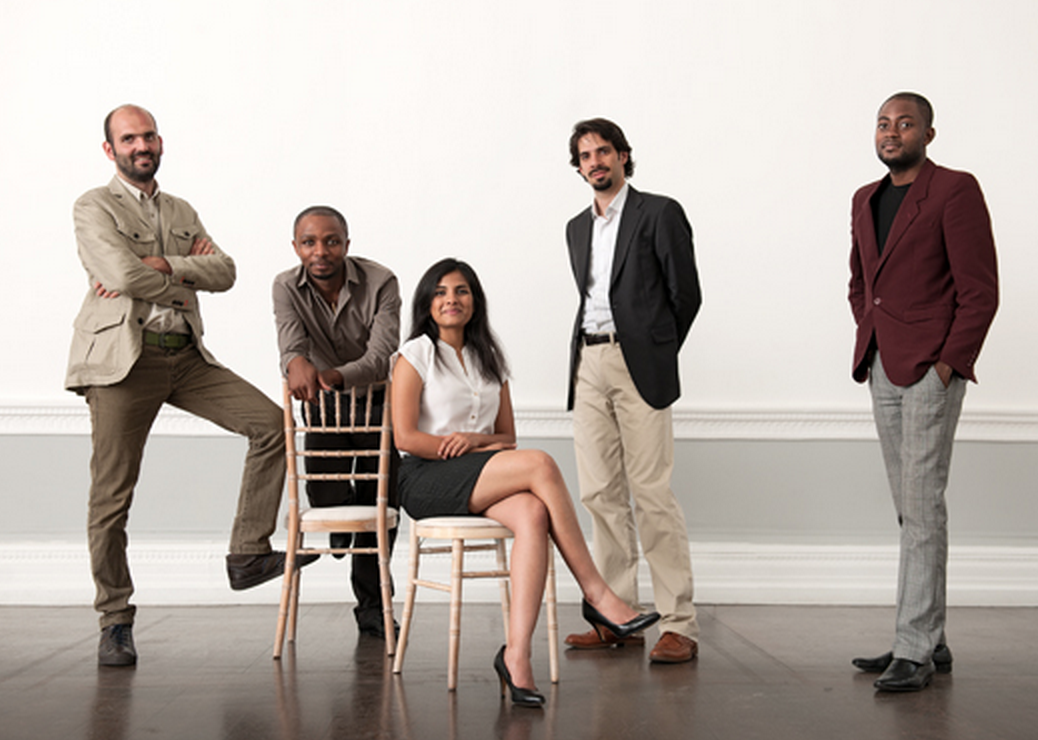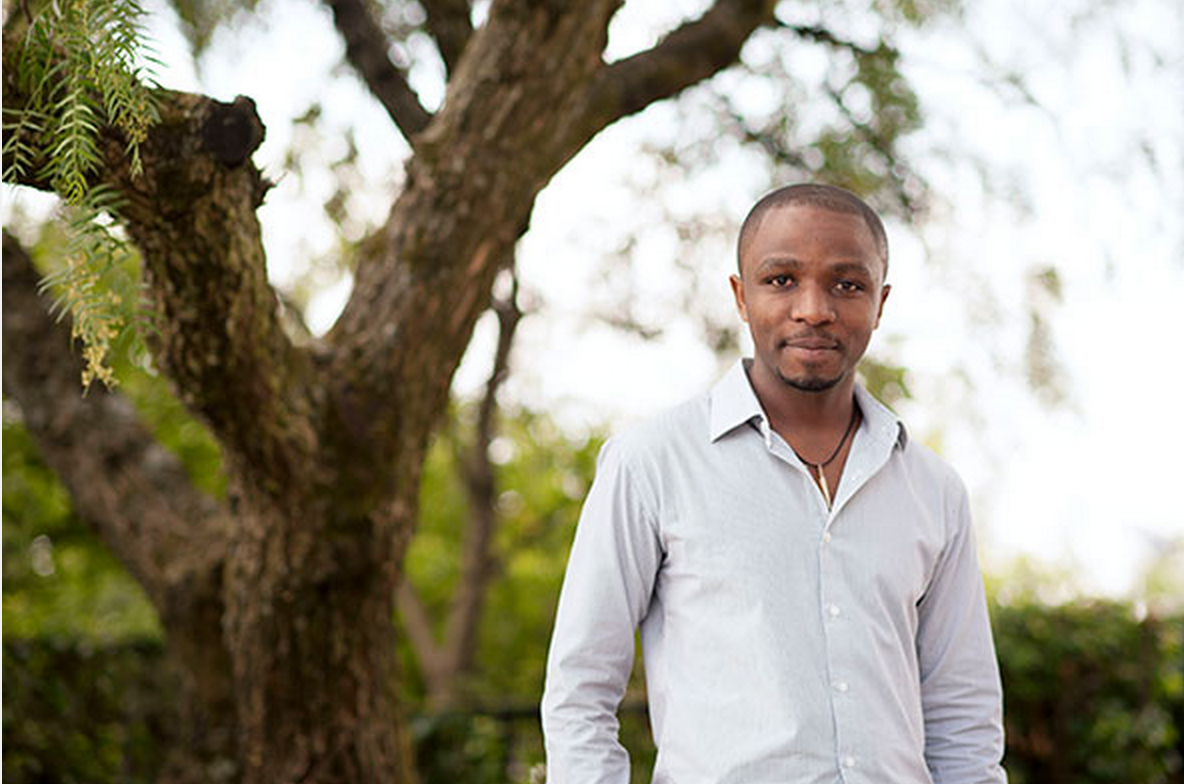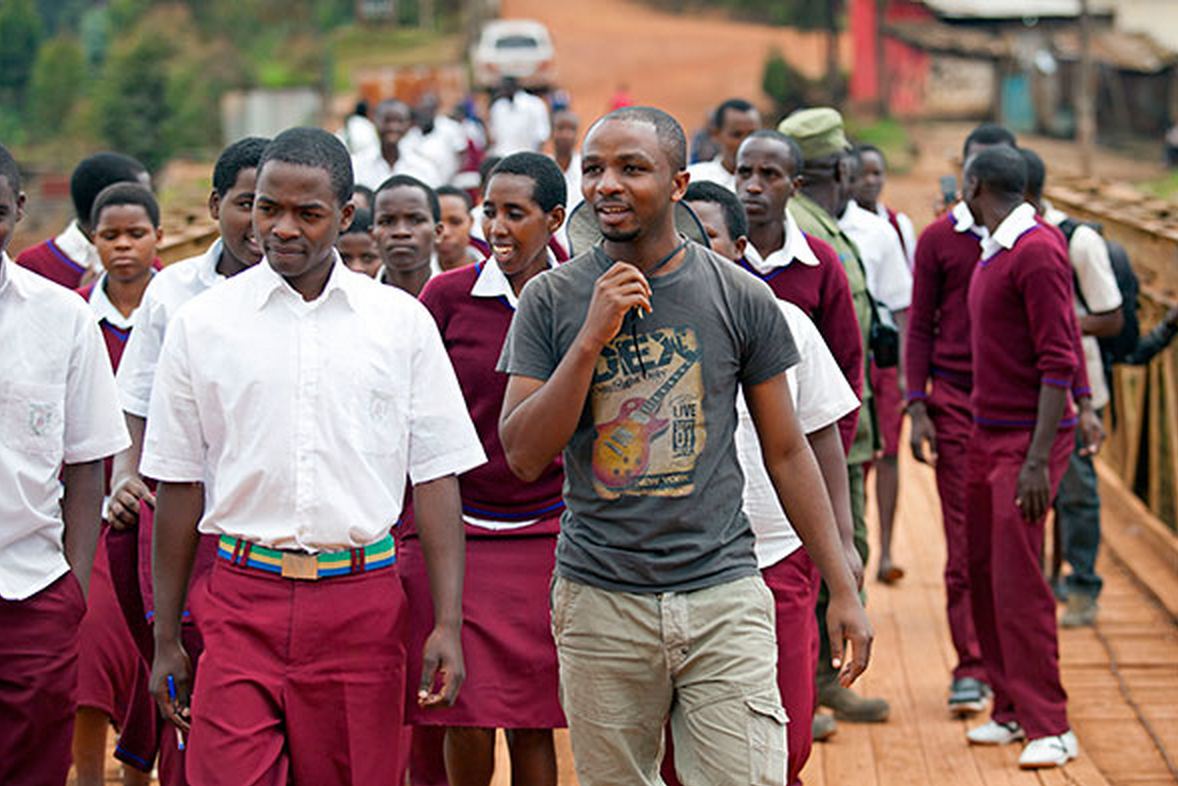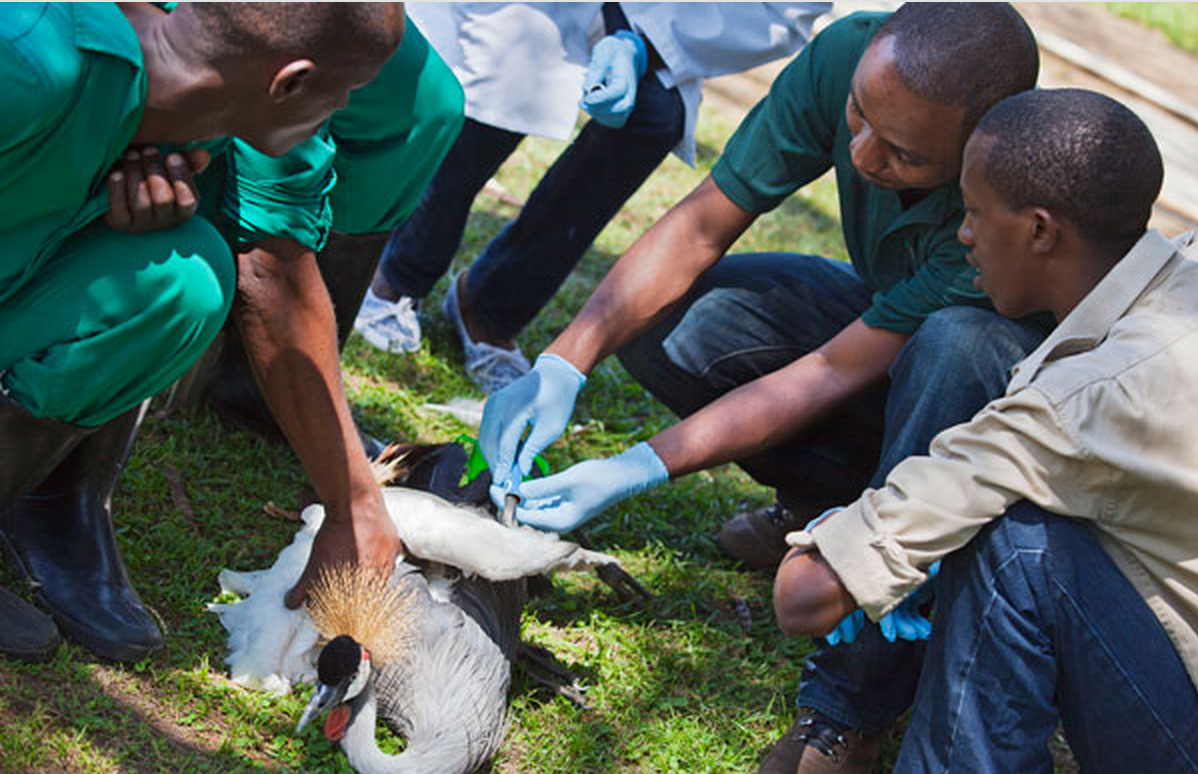Dr. Olivier Awarded the 2014 Rolex Awards for Enterprise
By Gorilla Doctors Staff on Saturday, June 21st, 2014 in Blog.We are thrilled to announce that Dr. Olivier Nsengimana, Gorilla Doctors Field Veterinarian for the PREDICT Rwanda project, has been named a winner of the prestigious 2014 ROLEX Awards for Enterprise! Dr. Olivier and the four other Young Laureates, hailing from Africa, India, Europe and the Middle East, attended a ceremony today in London, where they received their award.
“This year’s Young Laureates – aged 30 and under – impress by both their leadership qualities and in their ability to harness technology in an original way to improve the well-being of the community and the environment, as well as to advance scientific knowledge” said Ms. Anne-Sophie de Guigne of ROLEX. “The programme recognizes enterprising men and women who are using their talents and initiative to change the world in five broad areas: science and health, applied technology, the environment, exploration and discovery, and cultural heritage.”
 2014 Young Laureates: Rolex Awards for Enterprise. From left: Francesco Sauro, Olivier Nsengimana, Neeti Kailas, Hosam Zowawi, Arthur Zang.A jury of eight scientists, environmentalists, conservationists, and social entrepreneurs convened in Geneva, Switzerland to select five of the twenty-two finalists to be awarded the 2014 ROLEX Award for Enterprise. Over 1,800 young visionaries applied from all over the world. The five Young Laureates will receive “50,000 Swiss francs to further their work, a ROLEX chronometer, the benefits of an ongoing, international publicity campaign and will have access to the network of more than 100 previous Laureates of the ROLEX Awards”.
2014 Young Laureates: Rolex Awards for Enterprise. From left: Francesco Sauro, Olivier Nsengimana, Neeti Kailas, Hosam Zowawi, Arthur Zang.A jury of eight scientists, environmentalists, conservationists, and social entrepreneurs convened in Geneva, Switzerland to select five of the twenty-two finalists to be awarded the 2014 ROLEX Award for Enterprise. Over 1,800 young visionaries applied from all over the world. The five Young Laureates will receive “50,000 Swiss francs to further their work, a ROLEX chronometer, the benefits of an ongoing, international publicity campaign and will have access to the network of more than 100 previous Laureates of the ROLEX Awards”.
 Dr. Olivier Nsengimana. Photo © Rolex Awards/Ambroise Tézenas
Dr. Olivier Nsengimana. Photo © Rolex Awards/Ambroise Tézenas
Dr. Olivier is a native of Gitarama, Rwanda and graduated with a Doctor of Veterinary Medicine degree from the Higher Institute of Agriculture and Animal Husbandry (ISAE) – Busogo. In early 2010, Dr. Olivier interned with Gorilla Doctors, working to develop a management plan for the dairy farm at Imbabazi Orphanage. Later in the year, he volunteered for the Gorilla Doctors PREDICT program, taking blood samples from rodents around Volcanoes National Park to be analyzed for infectious disease. For the last 3 years, he has worked alongside Dr. Julius Nziza, the Gorilla Doctors PREDICT Rwanda Country Coordinator, conducting research on emerging pandemic threats in and around Rwanda’s national parks. Dr. Olivier is currently studying for a long-distance MVetSci in Conservation Medicine at the University of Edinburgh, Scotland and is expected to graduate in 2015.
 Dr Olivier looks for Grey Crowned Cranes in the Rugezi marshlands. Photo © Rolex Awards / Ambroise Tezenas
Dr Olivier looks for Grey Crowned Cranes in the Rugezi marshlands. Photo © Rolex Awards / Ambroise Tezenas
 The Grey Crowned Crane, threatened by habitat loss and a growing illegal trade. Photo © J Shouse Photojournalism.With support from the Rwanda Development Board, Dr. Olivier will work to convince those who keep the birds as pets – which is illegal – to take advantage of an amnesty programme and relinquish them to a rehabilitation centre, from where they can be released into the wild. Additionally, he is establishing a database of Grey Crowned Cranes in Rwanda and embarking on an awareness-raising campaign through the media to persuade people of the importance of conservation and the necessity of finding livelihoods that do not threaten endangered species.
The Grey Crowned Crane, threatened by habitat loss and a growing illegal trade. Photo © J Shouse Photojournalism.With support from the Rwanda Development Board, Dr. Olivier will work to convince those who keep the birds as pets – which is illegal – to take advantage of an amnesty programme and relinquish them to a rehabilitation centre, from where they can be released into the wild. Additionally, he is establishing a database of Grey Crowned Cranes in Rwanda and embarking on an awareness-raising campaign through the media to persuade people of the importance of conservation and the necessity of finding livelihoods that do not threaten endangered species.
 Dr. Olivier works on a Grey Crowned Crane in Rwanda. Photo © Rolex Awards/Ambroise Tézenas“In Rwanda, the crane is a symbol of wealth and longevity. With a golden tufted crown and a flame-red wattle on its neck, it is a desirable pet for Rwanda’s elite. Despite a ban by the Rwandan Government on killing, injuring, capturing or selling endangered species, locals poach the birds and sell them as cheaply as chickens. The result has been devastating for Rwanda’s only species of crane. Its population has fallen by 80 percent over the past 45 years. While there are Grey Crowned Cranes in other countries, only 300–500 are thought to exist in the wild in Rwanda, mainly at Rugezi Marsh, a protected area in the north of the country. A rehabilitation centre will soon be built in Akagera National Park, in northeast Rwanda. The centre will begin reintroductions to the wild, as well as promote breeding programmes.
Dr. Olivier works on a Grey Crowned Crane in Rwanda. Photo © Rolex Awards/Ambroise Tézenas“In Rwanda, the crane is a symbol of wealth and longevity. With a golden tufted crown and a flame-red wattle on its neck, it is a desirable pet for Rwanda’s elite. Despite a ban by the Rwandan Government on killing, injuring, capturing or selling endangered species, locals poach the birds and sell them as cheaply as chickens. The result has been devastating for Rwanda’s only species of crane. Its population has fallen by 80 percent over the past 45 years. While there are Grey Crowned Cranes in other countries, only 300–500 are thought to exist in the wild in Rwanda, mainly at Rugezi Marsh, a protected area in the north of the country. A rehabilitation centre will soon be built in Akagera National Park, in northeast Rwanda. The centre will begin reintroductions to the wild, as well as promote breeding programmes.
To read more about Dr. Olivier’s ROLEX award and the Grey Crowned Crane project, click here.
On behalf of the entire Gorilla Doctors team, congratulations Dr. Olivier!


 Donate
Donate